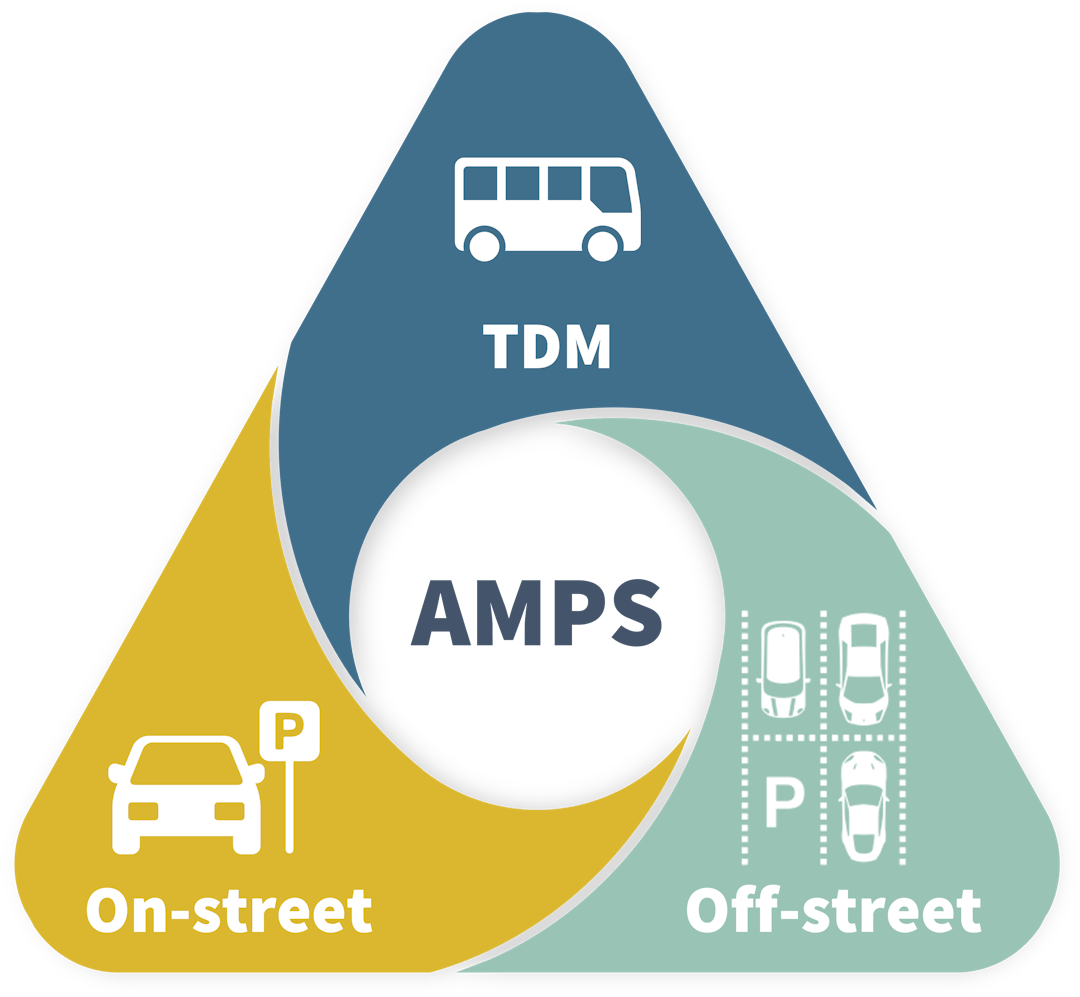Access Management and Parking Strategy (AMPS): Code and Policy Updates

Upcoming Public Hearings
Learn about and share your perspective on the city’s AMPS code changes.
- Transportation Advisory Board: Monday, May 12 | 6 p.m. | Virtual
- Attend to speak at the public hearing or email comments in advance to tab@bouldercolorado.gov
- Planning Board: Tuesday, May 20 | Hybrid - Penfield Tate II Municipal Building, 1777 Broadway, City Council Chambers or Virtual
- Attend to speak at the public hearing or email comments in advance to boulderplanningboard@bouldercolorado.gov
- City Council: Thursday, June 26 | 6 p.m. | Penfield Tate II Municipal Building, 1777 Broadway, City Council Chambers
Find the draft ordinances at the right of this page under "Documents"
Welcome!
The AMPS project covers three topics related to parking:
- off-street parking standards,
- transportation demand management (TDM) and
- on-street parking management strategies.
This project will reimagine the approach to parking regulation and TDM in Boulder. The project implements several built environment, economic, housing and transportation policies from the adopted Boulder Valley Comprehensive Plan and is intended to meet the measurable objectives laid out in the Transportation Master Plan.
What is Being Considered?
Learn more about Boulder's parking supply and potential opportunities to rethink parking regulation.
Off-Street Parking Requirements
- Eliminate the minimum off-street parking requirements in city code for all businesses and types of housing in the city.
- Recent state legislation (HB24-1304) states that as of June 30, 2025, cities may not require off-street parking for multifamily residential uses in transit service areas. The transit service areas cover 77 percent of parcels in the city.
- Without minimum requirements set by the city, developers and property owners would instead provide the number of parking spaces they determine is necessary for the users of the building.
- Learn more about the nearly 80 cities in the United States that have already eliminated minimum off-street parking requirements.
- Update bike parking design standards to better accommodate cargo and e-bikes.
Transportation Demand Management
- Design an ordinance based on best practices and input that provides incentives, programs, amenities, and services for employees or community members to use other transportation options rather than driving a vehicle.
- Focus on mitigating impacts and improving mobility and access.
- Use a tiered approach with increasing requirements based on development size and impact, with some exemptions for small projects or areas of the city that already have specific TDM requirements.
On-Street Parking Management Strategies
- Minor updates to the Neighborhood Permit Parking (NPP) program, like changes to how guest and visitor permits are issued or "park and walk" zones near schools.
- New tools in the Residential Access Management Program to facilitate new development, like piloting paid parking for visitors instead of free time-limited parking.
- Proactive review of on-street parking needs when newer higher intensity development is proposed.
Share your input!
Use the tool below to let city staff, the Planning Board, the Transportation Advisory Board and the City Council know what you think about the proposed changes.
